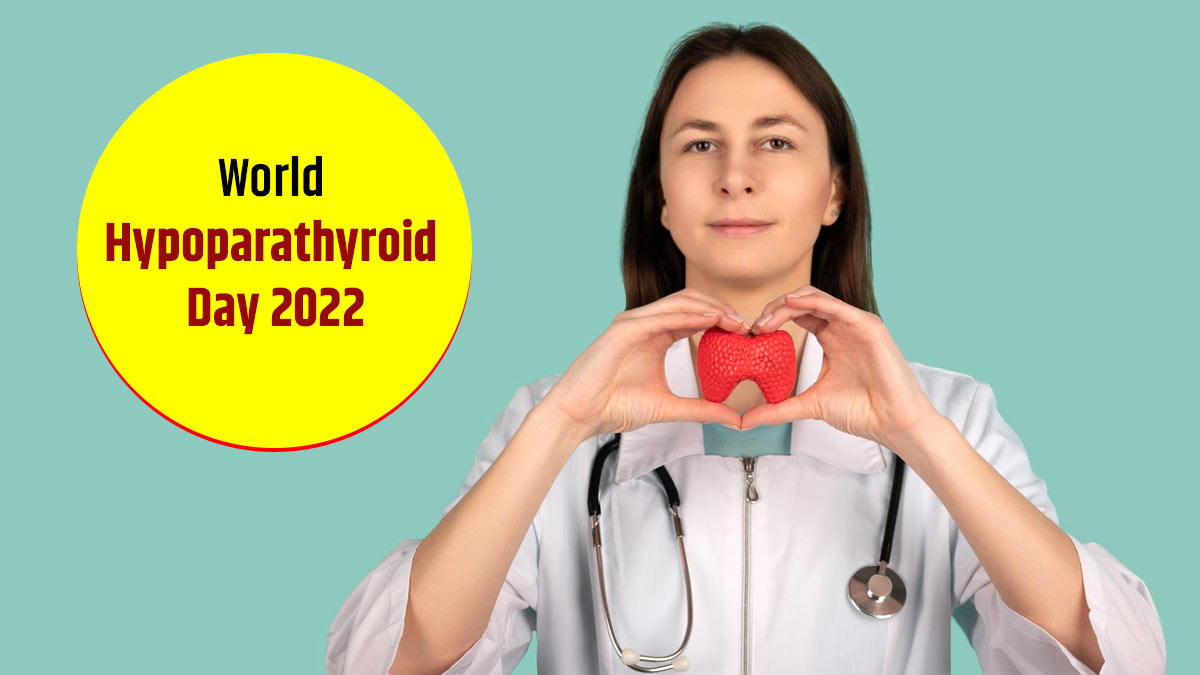
Hypoparathyroidism, like many rare conditions, is poorly understood, resulting in delayed diagnosis, leaving patients without the specialist care they require to overcome symptoms and stay active members of society. With this in mind, on June 1st, we commemorate World Hypoparathyroidism Awareness Day to raise awareness of the disease and the preventive actions that can benefit people in the early stages of the disease.
Table of Content:-
What is Hypoparathyroidism? It is a rare disorder in which the parathyroid glands, located near the thyroid gland in the neck, generate insufficient parathyroid hormone. This causes blood calcium levels to drop (hypocalcemia) and blood phosphorus levels to rise (hyperphosphataemia), resulting in muscle cramps, discomfort, and twitching, among other symptoms. World Hypoparathyroidism Awareness Day is celebrated on June 1, every year, to raise awareness about the rare condition hypoparathyroidism. On the occasion of World Hypoparathyroidism Awareness Day 2022, Onlymyhealth editorial team spoke to Dr. Prabhat Ranjan Sinha, Senior Consultant, Internal Medicine, Aakash Healthcare, Dwarka, to know more about Hypoparathyroidism.
What is Hypoparathyroidism?

Dr. Prabhat said, "Because most people are unaware of hypoparathyroidism, raising awareness is critical. It is a condition where the body produces an insufficient parathyroid hormone (PTH). This hormone is in charge of keeping calcium and phosphorous levels in check in the body. Hypoparathyroidism causes abnormally low calcium levels and a rise in phosphorus in the blood due to low PTH production."
Also read: 8 Signs And Symptoms Of Calcium Deficiency You Must Know
Symptoms of hypoparathyroidism
We also talked to Dr. HK Mahajan, Chief of Medical Administration and HOD Anaesthesia, Indian Spinal Injuries Centre, Delhi. He said, "Some early signs are tingling or burning in the fingertips, toes and lips, muscle aches or cramps in the legs, feet, stomach or face, twitching or spasms of muscles, particularly around the mouth, but also in the hands, arms and throat, fatigue or weakness, painful menstrual periods, patchy hair loss, dry, coarse skin, brittle nails and depression or anxiety.
To treat hypoparathyroidism, you need to take supplements, to bring calcium and phosphorus levels back to normal. Also need to take blood tests to monitor parathyroid hormones, Calcium and Magnesium levels." So, the main symptoms of hypoparathyroidism are:
- Tingling sensation in toes and fingertips
- Tiredness
- Muscle cramps and pain
- Twiching in facial muscles
- Dry and rough skin
- Mood swings
- Low blood pressure
Causes for Hypoparathyroidism
The removal of or inadvertent injury to the parathyroid glands during neck surgery is one of the main causes of this condition. In addition, autoimmune diseases such as Addison's disease and pernicious anaemia, in which the body erroneously attacks its own tissues, have been linked to this disease. Hypoparathyroidism can be caused by radiotherapy for throat or neck cancer, as well as low blood magnesium levels.
Hypoparathyroidism treatment

Dr. Sinha said, "There are no specific measures that can be taken to avoid hypoparathyroidism. If you're having thyroid or neck surgery, talk to your doctor about the possibility of your parathyroid glands being damaged during the treatment. Before surgery, your doctor may choose to evaluate your calcium, parathyroid hormone, and vitamin D levels and prescribe supplements if necessary." As a result, it is critical that people get enough calcium and phosphorus in their diet. To avoid calcium and phosphorous deficiency, doctors recommend including the following foods in one's diet:
- Dairy products such as milk, cheese, and other products
- Broccoli, cabbage, okra and other leafy green vegetables
- Beans from soya
- Tofu soya drinks with calcium-fortified nuts
- Fish with bones, such as sardines and pilchards, bread and anything prepared with fortified flour
Also read: Strictly Avoid These Foods If You Have Underactive Thyroid or Hypothyroidism
Phosphorus can be found in the following foods:
- Red meat
- Milk products
- Fish
- Poultry
- Rice
- Oats
Always consult your doctor before making dietary changes or taking supplements to ensure you're getting enough vitamins and nutrients.
Also watch this video
How we keep this article up to date:
We work with experts and keep a close eye on the latest in health and wellness. Whenever there is a new research or helpful information, we update our articles with accurate and useful advice.
Current Version